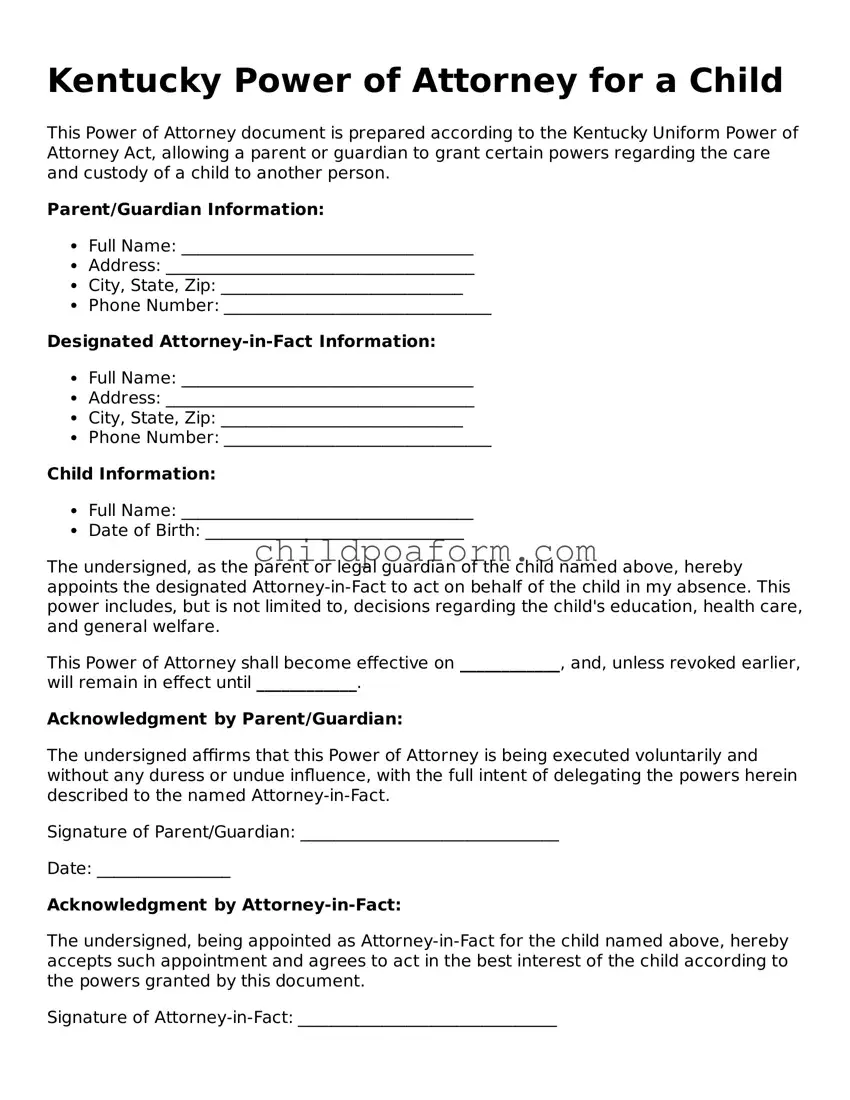Instructions on Utilizing Kentucky Power of Attorney for a Child
Filling out the Power of Attorney (POA) for a child in Kentucky is a significant step for a parent or guardian. It grants another person the legal authority to make decisions regarding the child's welfare on your behalf. Understandably, you might feel apprehensive about this process. Rest assured that by following the outlined steps carefully, you can ensure the form is completed accurately and in the best interest of the child.
- Start by obtaining the latest version of the Kentucky Power of Attorney for a Child form. This can usually be found online through the Kentucky court's official website or at a local legal aid office.
- Enter the date at the top of the form. This indicates when the POA becomes effective.
- Fill in the full legal names and addresses of the parent(s) or current legal guardian(s) as the grantor(s) in the designated spaces.
- Identify the full legal name, address, and relationship to the child of the person you are granting power to. This person will act as the agent.
- Specify the child's full legal name and date of birth in the appropriate sections.
- Detail the specific powers being granted to the agent. This might include decisions related to health care, education, and general welfare. Ensure you accurately reflect your intentions.
- Include any limitations or special conditions under which the POA will operate. This could involve time frames, restricted areas of decision-making, or circumstances under which the POA would be revoked.
- Both the grantor(s) and the agent must sign and date the form in the presence of a notary public. Notarization is essential as it validates the authenticity of the document.
- Finally, discuss the POA with the child if they are of appropriate age and understanding. This helps ensure transparency and maintains trust.
After completing and notarizing the form, keep the original document in a safe but accessible place. Provide copies to relevant parties such as schools, healthcare providers, or anyone else who might need to recognize the agent's authority. Remember, the POA can be revoked or amended at any time by the parent or legal guardian, as long as they are competent to do so. Regularly review the document to ensure it continues to serve the child's best interests.
